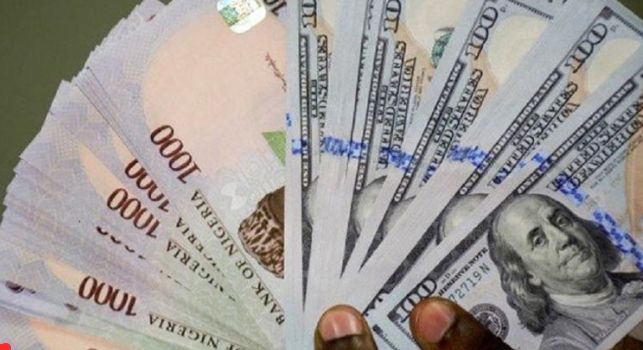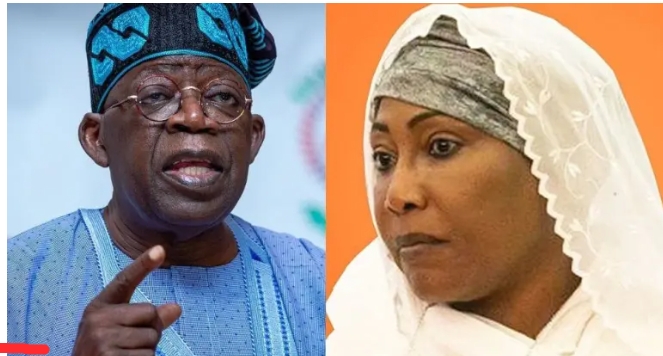News
Good News As Price Of Rice Crash

The price of local Rice in the country has dropped significantly from N84,000 to N60,000.
This is according to research in household food items, conducted from major markets across the country, this newspaper report.
The development may not be unconnected to the continuous appreciation of the currency, Naira against the US Dollar.
The Nigerian currency is currently exchanging against the dollar at its highest level in the last seven months.
The Naira is currently trading at N1,136.04 to the dollar at the official market.
Similarly, the Naira appreciated to N1,100 per dollar in the parallel market.
News
SEE Today’s Black Market Dollar To Naira Exchange Rate – 5th February 2025

By Kayode Sanni-Arewa
Black Market Dollar to Naira Exchange Rate – 5th February 2025
What is the current Dollar to Naira exchange rate in the black market, also known as the parallel market (Aboki FX)?
Check out the latest black market exchange rate for the Dollar to Naira as of 4th February 2025 below. You can exchange your dollars for naira at these rates..
How much is 1 USD to NGN in the black market today?
According to sources from Bureau De Change (BDC), the exchange rate at the Lagos Parallel Market (Black Market) on Tuesday, 4th February 2025, is as follows:
Buying Rate: N1,595 per dollar
Selling Rate: N1,605 per dollar
CBN Exchange Rate for Dollar to Naira Today
It’s important to note that the Central Bank of Nigeria (CBN) does not recognize the parallel market (black market) for forex transactions. The CBN has advised individuals and businesses to conduct foreign exchange transactions through their respective banks.
Here are the official CBN rates for 4th February 2025:
It’s important to note that the Central Bank of Nigeria (CBN) does not recognize the parallel market (black market) for forex transactions. The CBN has advised individuals and businesses to conduct foreign exchange transactions through their respective banks.
Here are the official CBN rates for 4th February 2025:
Highest Rate: N1,502 per dollar
Lowest Rate: N1,494 per dollar
Disclaimer: The exchange rates mentioned above may differ from the actual rates at which forex is bought or sold, as prices fluctuate frequently.
News
Popular Activist Najatu Insists On Ribadu’s Corrupt Remarks Against Tinubu

By Kayode Sanni-Arewa
Popular activist and politician Najatu Mohammed has challenged National Security Adviser (NSA) Nuhu Ribadu to take legal action over her recent remarks about him
Mohammed had alleged that Ribadu previously described President Bola Tinubu as corrupt but has now aligned himself with Tinubu’s administration as NSA.
In response, Ribadu, through his lawyer Ahmed Raji, issued a letter dated February 4 demanding a public apology and retraction, stating that the claims had caused him “unquantifiable damage.”
The letter refuted the allegations, stating that Ribadu had never made such remarks about Tinubu, Senator George Akume, or Senator Orji Uzor Kalu. It also accused Mohammed of inciting public sentiment against him and attempting to damage his reputation.
The letter further warned that failure to retract the statement within seven days and publish an apology in five national newspapers would result in legal action seeking exemplary damages.
The letter read: “Privately or publicly, our client has never expressed the above viewpoint about President Tinubu and/or Senators George Akume and Orji Uzor Kalu, which you attributed to him.
“In fact, our client has never held such a viewpoint about the president; hence, it came as a complete surprise to him when his attention was drawn to the aforesaid publication by you against him.
“In the foregoing premise, our client hereby challenges you to provide evidence of your allegations therein against him; which have cast him as double-faced, duplicitous, and deceitful in the eyes of right-thinking members of the society.
“Although masked as a clarion call to the North to rise up to your perceived injustice against the North by the government of the day, your publication is also inciting violence towards our client.
“Given this far-reaching ramification of your publication, our client will not sit back and watch his hard-earned reputation and goodwill destroyed by your malicious decision to not only lay false allegations against him, but also to cause the same to be published for the world’s attention.
“Your intention to bring our client to public ridicule, opprobrium, scorn, and shame, etc., is laid bare when it is considered that you deliberately caused the same to be published on social media, where it has since gone viral.
“Surely, the damage occasioned to our client by your deliberate but ill-advised action is unquantifiable. However, our client will be assuaged if you retract the said publication and tender an unreserved public apology to him in at least 5 [five] national daily newspapers within 7 [seven] days of receipt of this letter.
“If not, we have our client’s further instructions to seek redress against you in a court of law where exemplary damages will be claimed against you. Kindly be advised.”
However, in a telephone interview with Premier Radio on Tuesday evening, Mohammed stood by her statement, insisting that Ribadu had made the remarks while serving as chairman of the Economic and Financial Crimes Commission (EFCC).
“As EFCC chairman, Ribadu once said that Tinubu was among the most corrupt persons. And among the Nigerian governors, Tinubu was number one,” she claimed.
She added that the alleged statement was available in a YouTube video and maintained that she would not issue a retraction
“What is wrong if I said he is bowing to Tinubu? What is he doing as NSA? What security is he providing to the nation? He does nothing other than praising Tinubu to secure his position,” she asserted.
Mohammed reiterated her refusal to retract her remarks and openly challenged Ribadu to take her to court.
“Nuhu Ribadu should take me to the Nigerian Supreme Court, please,” she declared.
News
Enugu Tanker Explosion: Death Toll Rises to 23 as More Victims Succumb to Injuries

By Kayode Sanni-Arewa
The death toll from the tanker explosion at the Ugwu-Onyeama axis of the Enugu-Onitsha Expressway has climbed to 23, following the deaths of two additional victims who had been receiving treatment in the hospital.
Franklin Agbakoba, the Sector Commander of the Federal Road Safety Corps (FRSC), Enugu State Command, confirmed the latest fatalities on Tuesday in Enugu. He stated that two female victims—one at the University of Nigeria Teaching Hospital (UNTH), Ituku-Ozalla, and another at the National Orthopaedic Hospital, Enugu—succumbed to their injuries after battling for about a week.
The deadly incident occurred on January 25, at approximately 11:30 a.m., when a fuel-laden tanker suffered a brake failure, overturned, and exploded. The inferno engulfed multiple vehicles, killing 11 people instantly before emergency responders could arrive.
The situation worsened in the days that followed:
January 26: The death toll rose to 18.
January 29: The number of fatalities increased to 21.
February 5: The latest update brings the toll to 23.
Following the explosion, emergency personnel, including FRSC officers and the Enugu State Fire Service, swiftly responded to the scene.
The fire was eventually extinguished, and the bodies of the deceased were evacuated, while injured survivors were rushed to major hospitals in Enugu.
According to Agbakoba, five victims were initially admitted to UNTH:
One succumbed to injuries at the end of January.
Another remains hospitalized.
Three victims from the same family were discharged against medical advice and opted for traditional treatment at home.
At the ESUTH Teaching Hospital, Parklane, Enugu:
Three female victims remain hospitalized.
Two patients were referred to the National Orthopaedic Hospital due to severe burns.
At the National Orthopaedic Hospital, Enugu:
One of the three victims admitted six days ago has died.
Two remain in critical condition.
They were later joined by another victim referred from ESUTH.
Agbakoba had previously disclosed that the tragic accident involved 44 individuals, as well as 16 vehicles (both commercial and private) and a commercial tricycle.
In total:
23 people have now lost their lives (8 males and 15 females).
Another 23 sustained injuries and were treated across three major government hospitals:
UNTH Ituku-Ozalla
ESUTH Teaching Hospital, Parklane
National Orthopaedic Hospital, Enugu.
The rising death toll underscores the severity of burn injuries and the urgent need for improved emergency response and medical facilities in Nigeria. Authorities have continued investigations into the accident, with calls for stricter safety regulations for fuel tankers to prevent similar tragedies in the future.
-

 News14 hours ago
News14 hours agoSEE list of States that will experience delayed rainfall in 2025
-

 News17 hours ago
News17 hours agoHunger forced me to sell my son N1.5m, mother tells police
-

 Entertainment17 hours ago
Entertainment17 hours agoI Do Both Ways!” – Denrele Edun Opens Up On His Sexuality
-

 News6 hours ago
News6 hours agoGovt releases power tariff hike guidelines for Discos
-

 News17 hours ago
News17 hours agoHIV-Positive Man Confesses To Sleeping With 1,000 Women
-

 News23 hours ago
News23 hours agoHuman trafficking: Court slams 5 years jail term on Benedicta Usen
-

 News21 hours ago
News21 hours agoHouse Pays Tribute to Late Deputy Whip, Onanuga, Adjourns Plenary
-

 News21 hours ago
News21 hours agoSocial Media On Fire As Cubana Chief Priest Mocks Burna Boy’s Grammy Loss








